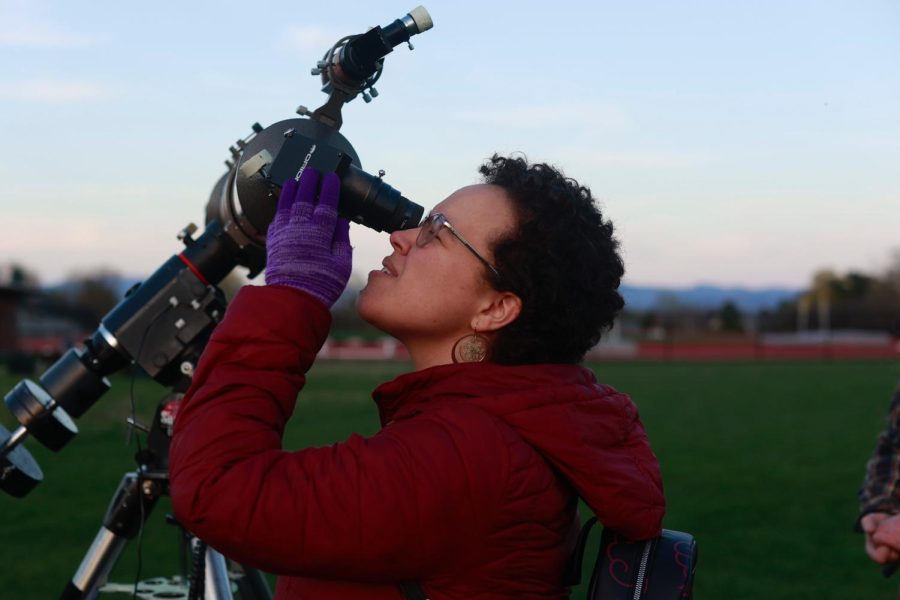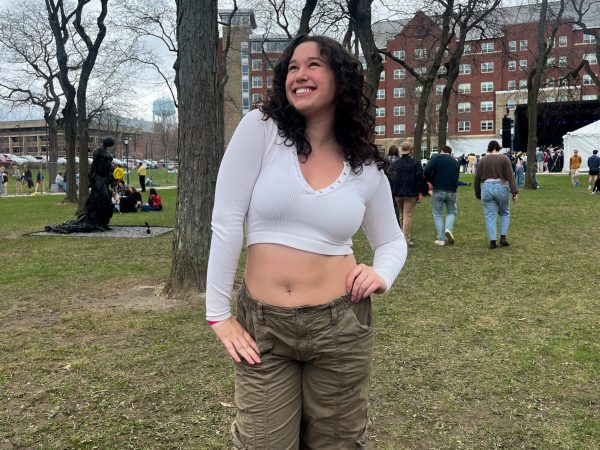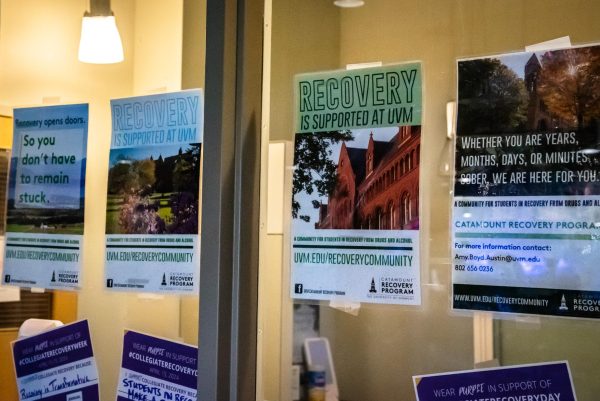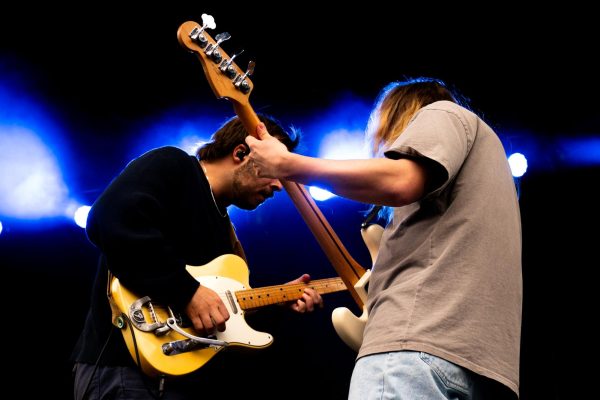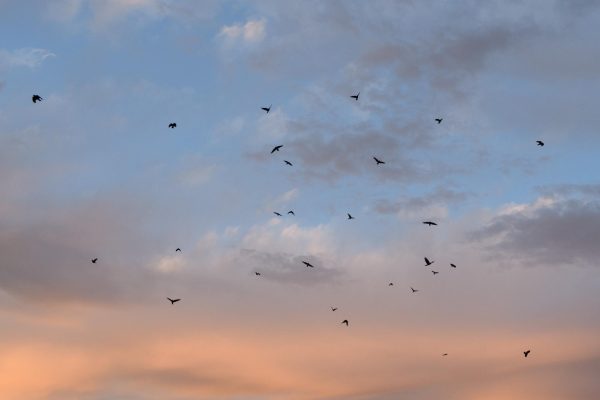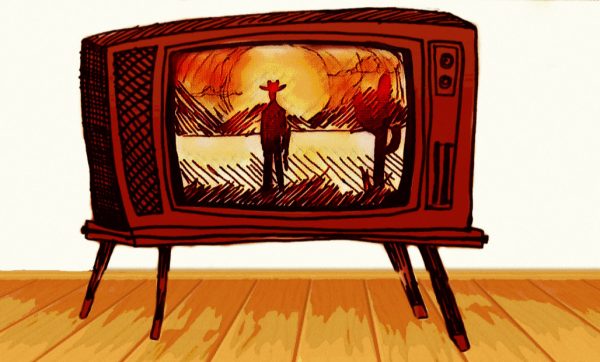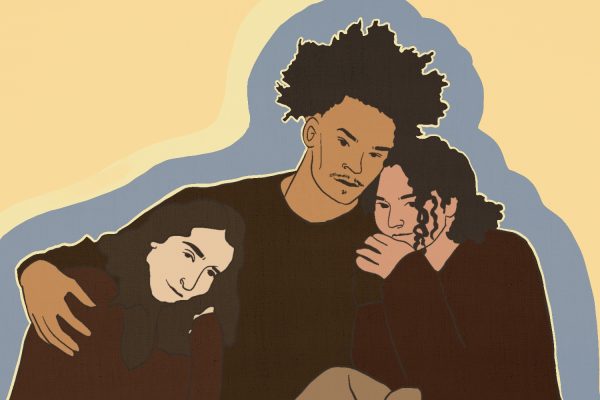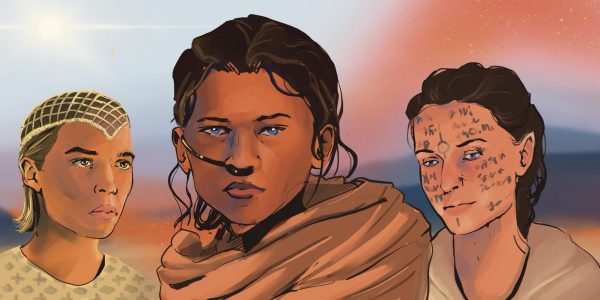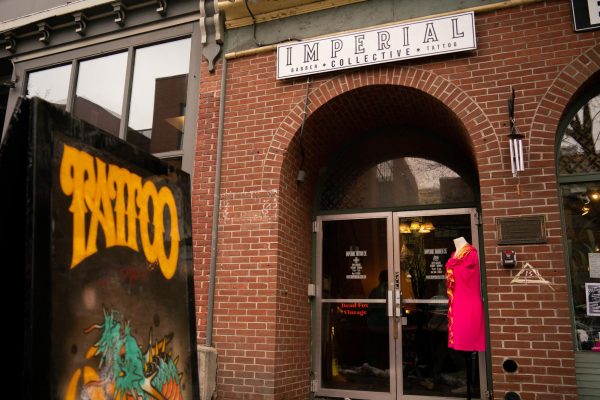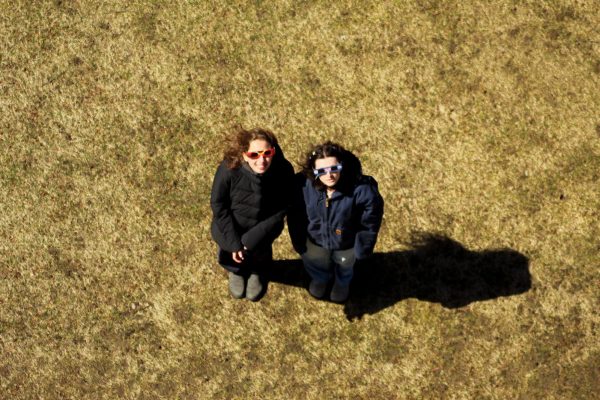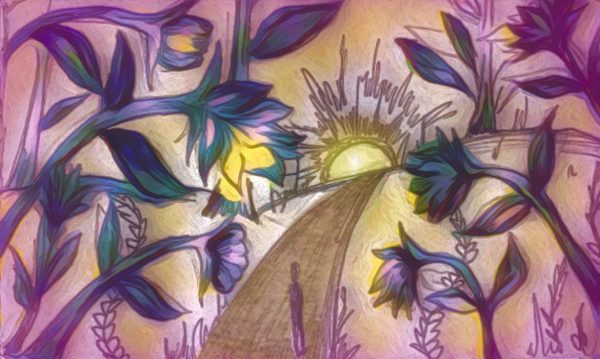A Celestial Celebration: 4/20 stargazing night cultivates community around astronomy
A student looks through a telescope at UVM Space Club’s stargazing night on the Livak track April 20.
April 27, 2023
After a special excursion on Redstone green, students reclined on the grass and watched the sky darken to astronomical instrumentals.
Two hundred students lounged on blankets and perched over telescopes at a stargazing night with live music by Lunch, a student band, at UVM’s Livak Track April 20.
The event was co-hosted by UVM Space Club and the UVM chapter of SACNAS, which serves to foster success for STEM students of underrepresented backgrounds, according to the chapter’s website.
Space Club hosts astronomy events for STEM and non-STEM students alike, said Club President and sophomore Justin Dulyanunt. The purpose of the stargazing night was to cultivate widespread interest in astronomy despite a dwindling astronomy department.
UVM currently offers an astronomy minor as a small subset of the physics department, with John Perry as the astronomy department’s sole lecturer.
“There were originally three [lecturers] in the early 2000s, but two of them have retired in the last decade and UVM hasn’t really been supporting us in terms of funding and hiring new lecturers,” Dulyanunt said. “With the advancements we’re making in the field of space exploration around the world, it’s disheartening to see UVM go in the opposite direction.”
At the event, there were six telescopes available for night sky viewing. Three were provided by Space Club members, two by the physics department, and one by the Vermont Astronomical Society, a state-wide club for amateur astronomers which is located in Burlington.
“During the little break in the clouds we had for like an hour, we got to see Mars and Venus and just a bunch of stars,” Dulyanunt said.
Some students, like first-year Camilla McCartt, had the opportunity to see a planet up close for the first time.
“The vibes were good,” McCartt said. “We got to see Mars through a telescope. I’d never looked through a telescope or seen a planet through a telescope before.”
Free snacks and hot chocolate were provided, but rapidly depleted. Space Club underestimated how many people would attend Thursday’s event, since they planned for numbers similar to their first stargazing event in November, Dulyanunt said.
“We estimated around fifty people, but we had like four times that,” he said.
Virtue Field’s stadium lights, illuminating the neighboring ultimate frisbee practice, made it slightly difficult to see the stars.
Underestimating how many people would attend the event, Space Club did not consider the lights a priority while planning, Dulyanunt said.
Nonetheless, Burlington generally offers a rare lack of light pollution, making the stars more visible here than in other parts of the country, he said.
Light pollution is the excessive use of artificial light that affects human health, wildlife behavior and the ability to observe the stars and other celestial objects, according to a July 15, 2022 National Geographic article.
“I feel that stars should be seen more here,” Dulyanunt said. “Because I come from New York City and I rarely see anything. So I very much wanted to share that with people.”
More than 80% of the world’s population—and 99% of Americans and Europeans—live under sky glow, a type of urban light pollution which brightens the night sky due to electric lights from cars, street lamps, buildings and outdoor billboards, according to the National Geographic article.
Other students who came to UVM from urban areas, like first-year Sam Gregerman, appreciated the night sky visibility while stargazing.
“I live somewhere where there’s a lot of light pollution because I live by Chicago,” she said. “So being out here, it’s really nice to be able to see the stars every night, but especially be able to see two planets at a time. I don’t think I’ve ever been able to do that before.”
The event was held on 4/20 due to scheduling convenience rather than a recognition of UVM’s favorite unofficial holiday, Dulyanunt said.
“We had to schedule with Lunch as well as the Vermont Astronomical Society, so it just aligned well,” he said. “And we picked Thursday because we thought people would want to hang out with their friends on Friday. It being 4/20 was just kind of a coincidence.”
Although people can be intimidated by astronomy’s ties to physics and math, stargazing is a largely philosophical practice in which students of any academic background can take part, Dulyanunt said.
“It’s a very calm event,” he said. “It could be a little emotional—you’re seeing something with your own eyes, even if it’s millions of light years away.”


